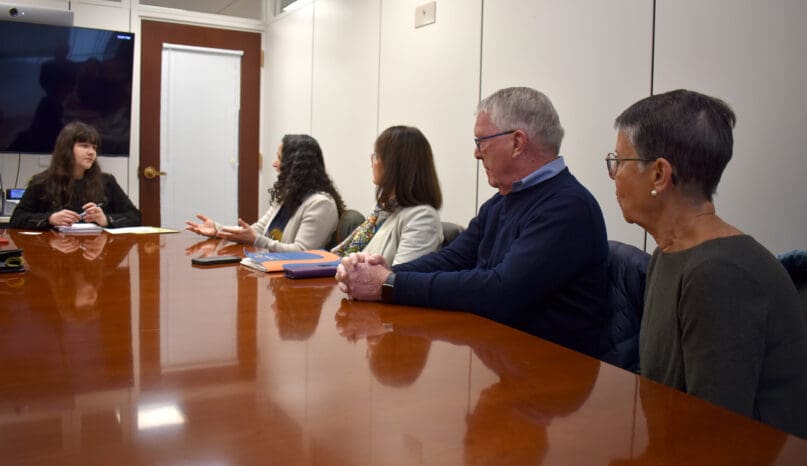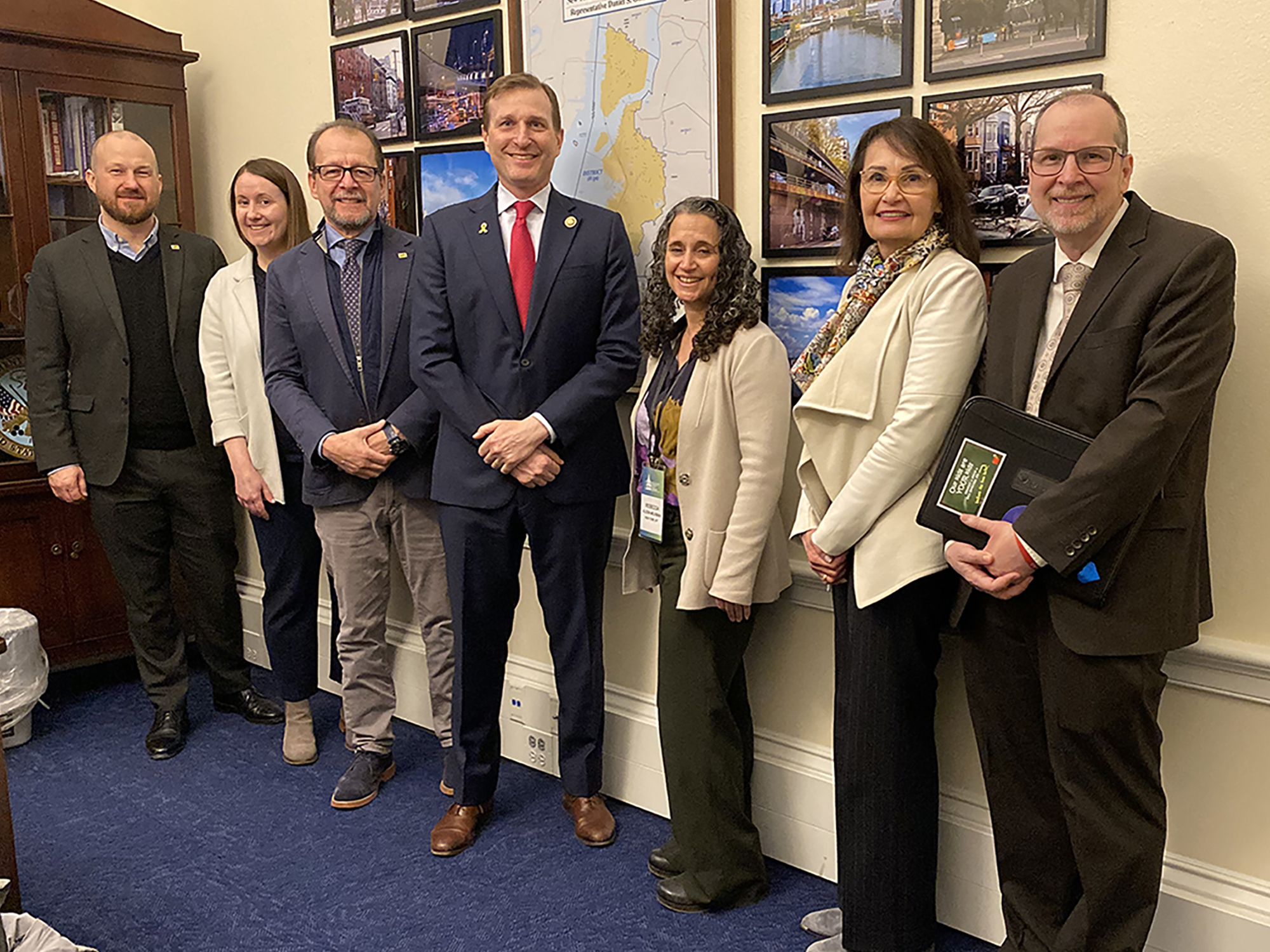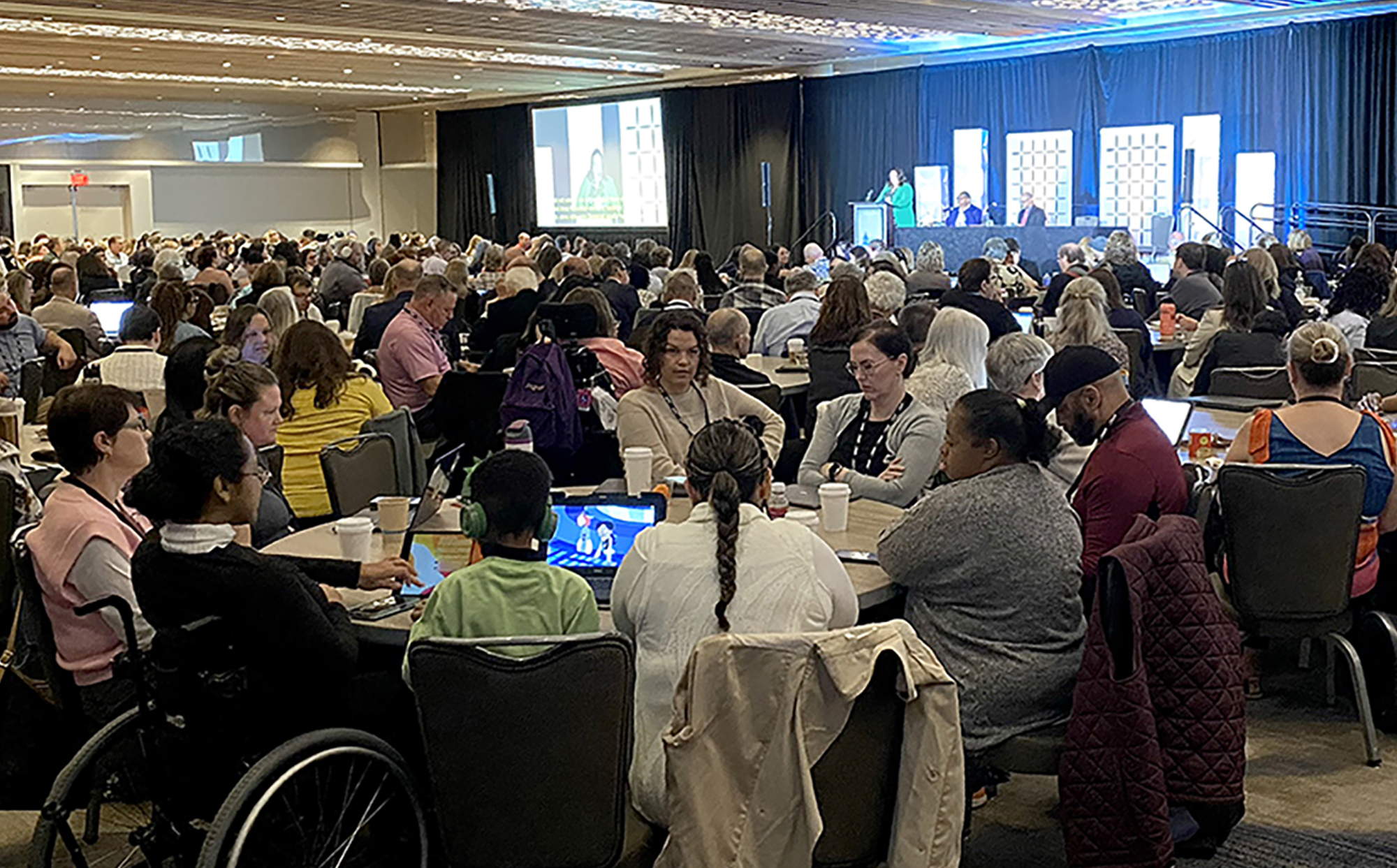
AHRC New York City joined hundreds of other disability rights advocates at the Disability Policy Seminar in Washington, D.C. from April 7-9. Threats to Medicaid were at the forefront of presenters’ and attendees’ minds, and AHRC NYC advocates explained the importance of this critical federal program on Capitol Hill in frank conversations with legislators and their staff.
About Medicaid
Medicaid covers nearly 80 million people nationwide. The cost of the program is divided between states and the federal government. Each state pays a different portion, depending on a formula, called FMAP. More than 11 million people with disabilities rely on Medicaid to live independent and healthy lives—in fact, Medicaid is the primary funding source for long-term services and supports (LTSS) and home and community-based services (HCBS).
New York State has one of the most robust Medicaid programs in the country. The state’s Office of People with Developmental Disabilities (OPWDD) relies on Medicaid dollars to pay for:
- HCBS waiver services (i.e., most OPWDD services, such as respite, supported employment, community habilitation, day habilitation, and residential services)
- Children’s waiver services (for children up to 18 who have severe medical needs and a developmental disability);
- Care coordination
- Additional health-related items and services (like Article 16 clinic services)
The impact of cuts to Medicaid is simple: devastating effects for disability service providers, people with disabilities, and their families. Federal cuts force states to fill massive budget holes. States can close these holes by:
- cutting optional benefits (including HCBS)
- cutting provider rates (leading to exacerbated crises like workforce shortages)
- cutting enrollment (waitlists, stricter eligibility, and loss of coverage)
Advocacy for Medicaid, therefore, has never been more important in the face of severe cuts proposed by Congress.
Advocating on Capitol Hill
AHRC NYC met with several legislators and their staff members on Wednesday, April 9. Representative Dan Goldman, who represents lower Manhattan and parts of Brooklyn, including AHRC NYC Headquarters in the Financial District, strongly expressed his support for Medicaid and other disability services, urging advocates to tell their stories to legislators to describe what the human cost of cuts would be.

AHRC NYC leadership and board members met with Rep. Mike Lawler, a key vote in efforts to cut Medicaid. Contact Rep. Lawler to tell him to protect Medicaid to keep disability services in New York State whole.
We also met with staff members from the offices of Senator Chuck Schumer, Senator Kirsten Gillibrand, and Rep. Hakeem Jeffries. We thank all of them for their attention to the threats to Medicaid and disability services in New York State.
Additional Updates from the Seminar
The bipartisan SSI Savings Penalty Elimination Act, introduced in both the House and Senate, would empower millions of people with disabilities to earn and save more money for their future by raising asset limits for individuals and married couples and indexing asset limits to inflation moving forward. More than 400 businesses, faith-based organizations, and advocates have endorsed this bill. Contact your members of Congress to support this legislation to correct a decades-long wrong against people with disabilities. Workforce reductions at the Department of Education could have harmful effects on special education. USA Today writes that “For years, the Education Department has dispersed federal dollars to states to spend on students with disabilities, conducted national research by analyzing state-to-state data and collected and investigated special education-related civil rights complaints.” Experts at the seminars said recent changes at the DOE would go against these longstanding initiatives.

